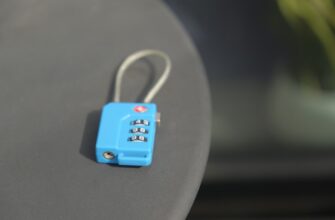Introduction: Navigating the World of Bitcoin Safely
Bitcoin, the pioneering cryptocurrency, offers exciting potential but demands careful handling. Knowing how to buy Bitcoin and keep it safe is crucial for protecting your investment from hackers, scams, and simple mistakes. This guide provides a clear, step-by-step approach to purchasing Bitcoin while emphasizing essential security practices every holder must follow. Security isn’t an afterthought; it’s the foundation of successful Bitcoin ownership.
Choosing Where to Buy Bitcoin: Exchanges, Brokers, and More
Your first step is selecting a reputable platform. Different options cater to various needs:
- Cryptocurrency Exchanges (e.g., Coinbase, Kraken, Binance): Offer the most features, competitive fees, and access to many cryptocurrencies. Often require more identity verification (KYC). Best for active traders.
- Brokerage Apps (e.g., Robinhood, Cash App): Simpler interfaces, often integrated with traditional investing. You typically “own” the Bitcoin price exposure but may not control the actual coins immediately. Great for beginners seeking ease.
- Peer-to-Peer (P2P) Marketplaces (e.g., LocalBitcoins, Paxful): Connect buyers and sellers directly. Offer payment flexibility (cash, gift cards) but require higher vigilance against scams. Best for privacy or specific payment methods.
- Bitcoin ATMs: Allow cash purchases but charge very high fees (often 10-20%). Useful for quick, anonymous (within limits) small purchases.
Key Selection Criteria: Prioritize platforms with strong security features (2FA, insurance), regulatory compliance, transparent fees, a good reputation, and user-friendly interfaces. Research thoroughly before signing up!
Step-by-Step: How to Buy Bitcoin
Once you’ve chosen your platform, follow these general steps (specifics vary by service):
- Create and Verify Your Account: Sign up using your email and a strong, unique password. Complete the Know Your Customer (KYC) process by providing ID and proof of address as required.
- Secure Your Account: IMMEDIATELY enable Two-Factor Authentication (2FA) using an authenticator app (like Google Authenticator or Authy), NOT SMS if possible. This adds a critical security layer.
- Deposit Funds: Link your bank account (ACH transfer), use a debit/credit card (higher fees), or deposit existing cryptocurrency. Verify deposit times and any fees.
- Place Your Buy Order: Navigate to the trading section. Choose Bitcoin (BTC). Select the order type: ‘Market Order’ (buys immediately at current price) or ‘Limit Order’ (sets a specific price you’re willing to buy at). Enter the amount in your local currency or BTC.
- Review and Confirm: Double-check the amount, price, and fees before confirming the transaction.
- Receive Your Bitcoin: The purchased Bitcoin will appear in your account’s exchange wallet. Important: Leaving coins on an exchange is risky. Your next critical step is moving them to a secure wallet you control.
Essential Security Practices: How to Keep Your Bitcoin Safe
Buying Bitcoin is only half the battle. Keeping it secure is paramount. Here’s how to protect your investment:
- Get Your Bitcoin Off Exchanges: Exchanges are prime targets for hackers. Only keep funds there for immediate trading. Transfer the bulk to a secure wallet you control.
- Use a Secure Bitcoin Wallet: Choose wisely:
- Hardware Wallets (Cold Wallets – e.g., Ledger, Trezor): Physical devices storing private keys offline. Highly secure against online attacks. Essential for significant holdings.
- Software Wallets (Hot Wallets – e.g., Exodus, Electrum): Apps on your phone or computer. Convenient for smaller amounts or frequent access, but vulnerable if your device is compromised. Choose reputable, open-source options.
- Avoid Web Wallets/Exchange Wallets for Storage: These are custodial wallets controlled by the service provider, not you. Only use temporarily.
- Safeguard Your Private Keys & Seed Phrase: Your private key (or the 12/24-word seed phrase that generates it) is the master key to your Bitcoin. Lose it, lose your coins. Write it down physically on durable material (metal backup recommended), store multiple copies securely (e.g., safe deposit box, fireproof safe), and NEVER store it digitally (no photos, cloud, email, texts). Memorize it if possible. Tell NO ONE.
- Enable Strong, Unique Passwords & 2FA Everywhere: Use complex, unique passwords for your exchange account, email linked to crypto, and any software wallets. Enable 2FA using an authenticator app on all these accounts.
- Practice Device Security: Keep your computer and smartphone updated with the latest OS and security patches. Use reputable antivirus/anti-malware software. Be wary of phishing emails and fake websites (always double-check URLs).
- Beware of Scams: Never share your seed phrase or private keys. Ignore unsolicited offers (“send us Bitcoin to double it”). Verify wallet addresses meticulously before sending funds. If an offer seems too good to be true, it is.
- Consider Multi-Signature Wallets (Advanced): For large holdings, use wallets requiring multiple private keys to authorize a transaction, adding an extra layer of security.
Frequently Asked Questions (FAQ)
Q: Is Bitcoin safe to buy and hold?
A> Bitcoin itself is a secure protocol. The risks come from user error (losing keys), insecure storage (leaving coins on exchanges), and scams. By following rigorous security practices (using a hardware wallet, safeguarding seed phrase), you can make holding Bitcoin very safe.
Q: What’s the safest way to store Bitcoin?
A> A hardware wallet (cold storage) is the safest option for most holders. It keeps your private keys completely offline, immune to online hacks. Always back up the seed phrase securely and physically.
Q: Can I buy Bitcoin anonymously?
A> Full anonymity is difficult on regulated exchanges due to KYC laws. Bitcoin ATMs or certain P2P platforms offer more privacy, but often with higher fees or limits. Remember, transactions are recorded on the public blockchain.
Q: How much Bitcoin should I buy?
A> Only invest what you can afford to lose. Cryptocurrency markets are highly volatile. Start small to learn the process before committing significant funds.
Q: What happens if I lose my hardware wallet?
A> If you lose the physical device but have your securely stored seed phrase, you can recover your Bitcoin on a new wallet. The seed phrase is the ultimate backup. Losing the seed phrase without a backup means permanent loss of funds.
Q: Are software wallets safe enough?
A> Reputable software wallets are reasonably secure for smaller amounts you might use frequently. However, they are connected to the internet (“hot”) and vulnerable if your device is infected with malware. Never store large amounts or long-term holdings in a hot wallet; use a hardware wallet instead.
Q: How do I know if an exchange is safe?
A> Research! Look for exchanges with a long track record, strong regulatory licenses (where applicable), transparent security measures (like cold storage for user funds, insurance, 2FA enforcement), positive user reviews, and responsive customer support. Avoid obscure platforms.








